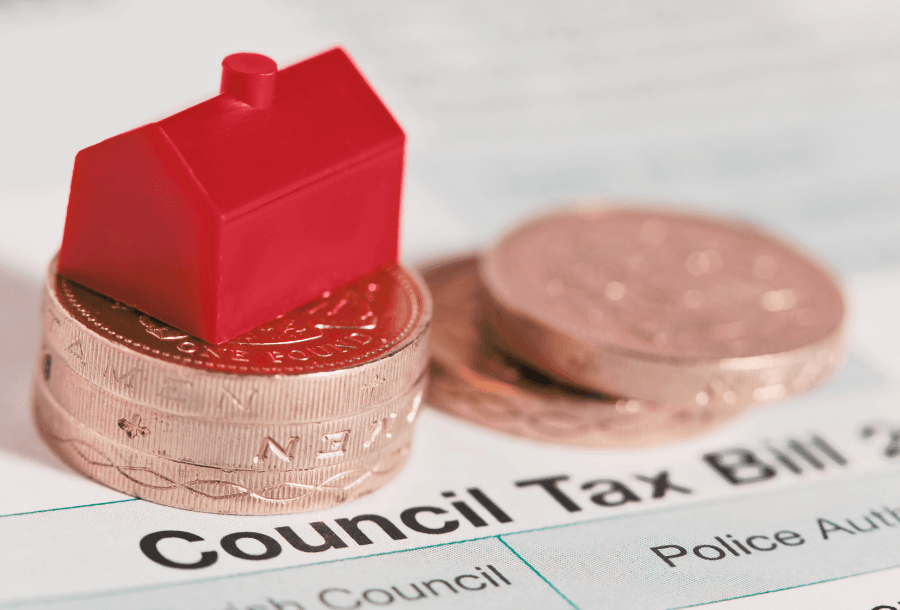Inheriting a house with a mortgage in the UK raises many questions. What happens to the debt? Can you keep the property? This guide explains the process, options and steps to take when you inherit a house with a mortgage. It provides clear, practical information to help you make informed decisions.
Contents
Understanding the Mortgage After Inheritance
When someone dies, their mortgage does not disappear. The debt remains tied to the property. The estate, which includes the house, must address the mortgage. Here’s how it works:
- Mortgage Responsibility: The executor of the will or administrator of the estate handles the mortgage initially. They notify the lender of the homeowner’s death. The lender then provides details about the outstanding balance, interest rate and repayment terms.
- Estate Funds: If the estate has enough money (from savings, investments, or life insurance), the executor may use these funds to pay off the mortgage. This clears the debt, and you inherit the house free of any loan.
- Ongoing Payments: If the estate cannot pay off the mortgage, the executor or beneficiary must decide what to do. The lender expects regular payments to continue, or they may demand full repayment.
The mortgage type affects your options. For example, a repayment mortgage requires monthly payments of both principal and interest. An interest-only mortgage requires only interest payments, with the principal due at the end of the term. Understanding the mortgage terms helps you plan your next steps.
Your Options When Inheriting a House with a Mortgage

You have several choices when inheriting a house with a mortgage. Each option depends on your financial situation, goals and the property’s value. Below are the main paths:
1. Keep the House and Take Over the Mortgage
You can assume responsibility for the mortgage and keep the property. Here’s what this involves:
- Contact the Lender: Inform the lender of your intent to take over the mortgage. They will assess your financial situation, including your income, credit history and ability to make payments.
- Transfer the Mortgage: If approved, the lender may allow you to assume the existing mortgage under its current terms. Some lenders require you to apply for a new mortgage in your name, which involves affordability checks and credit assessments.
- Costs Involved: You may need to pay legal fees, valuation fees, or arrangement fees if you take out a new mortgage. Check with the lender for specific costs.
- Eligibility: Lenders treat you like a new borrower. You must prove you can afford the payments. If you cannot meet their criteria, they may reject your application.
This option suits you if you want to live in the house or keep it as an investment. Ensure you can afford the monthly payments and any associated costs, such as property maintenance and council tax.
2. Sell the House to Pay Off the Mortgage
Selling the property is a common choice if you cannot afford the mortgage or do not want to keep the house. You can sell through traditional methods or to a cash house buying company. Here’s how each works:
Traditional Sale
- Valuation: Get a professional valuation to determine the property’s market value. This helps you set a realistic selling price.
- Pay Off the Mortgage: When you sell the house, the sale proceeds first go toward paying off the outstanding mortgage balance. Any remaining money goes to you or the estate.
- Costs of Selling: Expect to pay estate agent fees (typically 1–3% of the sale price), conveyancing fees and possibly early repayment charges if the mortgage has a penalty period.
- Timeline: Traditional sales can take 3–6 months, depending on market conditions and buyer interest.
This method often maximises the sale price but requires time and effort to market the property.
Sell to a Cash House Buying Company
- Process: Cash house buying companies purchase properties directly, offering a quick sale. You contact the company, provide property details, and they conduct a valuation (often remotely or with a brief visit). They then make a cash offer, typically within 24–48 hours.
- Offer Amount: Offers are usually below market value (70–85% of the property’s worth) because the company aims to resell for profit.
- Pay Off the Mortgage: The sale proceeds go toward clearing the mortgage balance. If the offer covers the debt, you avoid ongoing payments. If it doesn’t, you may need to use other estate funds to cover the shortfall.
- Costs: Most cash buyers cover legal and conveyancing fees, reducing your expenses. Confirm this with the company, as some may charge hidden fees.
- Timeline: Sales can be completed in 7–28 days, much faster than traditional sales. This suits those needing to settle the estate quickly.
- Considerations: Research reputable companies, as some may offer lowball prices or use high-pressure tactics. Check reviews and ensure they are members of organisations like the National Association of Property Buyers (NAPB) or The Property Ombudsman.
Selling to a cash buyer is ideal if you prioritise speed and convenience over maximising profit. It’s especially useful if the property needs repairs or the mortgage balance is high.
3. Rent Out the House
You can keep the property and rent it out to cover the mortgage payments. This option requires careful planning:
- Landlord Responsibilities: You must comply with UK landlord regulations, including safety checks, tenant rights and tax obligations. You’ll need to register as a landlord and declare rental income to HMRC.
- Buy-to-Let Mortgage: Most residential mortgages do not allow renting without permission. You may need to switch to a buy-to-let mortgage, which has different terms and higher interest rates.
- Rental Income: Ensure the rent covers the mortgage, insurance, maintenance and taxes. Research local rental prices to confirm this is viable.
- Risks: Vacant periods or problem tenants can create financial strain. Consider hiring a property management company, though this adds costs.

Renting suits those who want to keep the property long-term and generate income. It requires time, effort and financial stability.
4. Let the Lender Repossess the House
If you cannot afford the mortgage and do not want to sell or rent the property, you can surrender it to the lender. This is a last resort:
- Repossession Process: The lender sells the property to recover the outstanding mortgage balance. If the sale price does not cover the debt, the estate may still owe money.
- Impact on Credit: Repossession can harm your credit if you are named on the mortgage. It also affects the estate’s finances.
- Loss of Equity: If the house is worth more than the mortgage, you lose any potential profit from a sale.
Repossession avoids ongoing financial responsibility but may lead to losses. Explore other options first.
Legal and Financial Considerations
Inheriting a house with a mortgage involves legal and financial steps. Here are the key points to address:
- Probate: The executor must obtain probate (or confirmation in Scotland) to manage the estate. This legal process allows them to handle the mortgage and transfer the property to you.
- Inheritance Tax (IHT): You may owe IHT if the estate’s value exceeds £325,000 (2025/26 tax year). However, if the property passes to a spouse or civil partner, it is usually exempt. Check with a tax advisor to calculate any IHT due.
- Insurance: Ensure the property has building insurance to protect against damage. If you live in or rent out the house, consider contents insurance.
- Wills and Beneficiaries: If multiple people inherit the property, you must agree on what to do. Disagreements may require legal mediation.
- Debts: The estate’s other debts (e.g., credit cards) take priority over the mortgage. If the estate lacks funds, you may need to sell the house to cover these debts.
Seek advice from a solicitor or financial advisor to understand your obligations and rights.
Financial Implications
Inheriting a house with a mortgage comes with several financial considerations. These include taxes and ongoing property costs that can affect your decision.
Inheritance Tax (IHT)
Inheritance Tax may apply if the estate’s total value exceeds £325,000 (2025/26 tax year). An additional £175,000 allowance, called the Residence Nil Rate Band, applies when passing the main residence to direct descendants, such as children or grandchildren. This can raise the tax-free threshold to £500,000 per person. Amounts above this threshold are taxed at 40%.
For example, if the estate is worth £600,000, including the house and qualifies for the full allowance, you pay 40% tax on £100,000 (£40,000). If the property passes to a spouse or civil partner, it is usually exempt from IHT. Always consult a tax advisor to calculate your liability accurately.
Capital Gains Tax (CGT)
If you sell the inherited property and it is not your main residence, you may owe Capital Gains Tax on any profit. The gain is calculated based on the property’s market value at the time of the owner’s death, not the original purchase price. For example, if the house was worth £300,000 at the time of death and you sell it for £350,000, the £50,000 gain is subject to CGT. You can claim a tax-free allowance (£3,000 for the 2025/26 tax year). Gains above this are taxed at 18% or 24%, depending on your income tax band.
If you live in the house as your main residence before selling, you may qualify for Private Residence Relief, which exempts you from CGT. Cash house buying companies’ lower offers may reduce or eliminate CGT liability due to smaller gains. Check with a tax advisor for specific rules.

Council Tax Considerations
Inherited properties may face council tax obligations. If the house is unoccupied during probate, you may qualify for a temporary exemption, typically lasting up to six months after probate is granted. If the property remains empty afterwards, some councils charge an empty homes premium, which can increase council tax by up to 100%.
If you keep the house as a second home, certain local authorities impose a second homes premium, also up to 100%. Check with your local council for rates and exemptions. If you live in or rent out the property, standard council tax applies, with possible discounts for single occupants.
7 Steps to Take After Inheriting a House with a Mortgage
Follow these steps to manage the process smoothly:
- Notify the Lender: Contact the mortgage provider to report the homeowner’s death. Provide a death certificate and details of the executor or beneficiary.
- Review the Will: Check the will to confirm you are the beneficiary and understand any conditions.
- Assess Finances: Evaluate your ability to take on the mortgage or other costs. Gather information about the estate’s assets.
- Get a Valuation: Hire a surveyor to determine the property’s value and condition.
- Explore Options: Decide whether to keep, sell, rent, or surrender the house. Compare the financial and practical implications.
- Seek Professional Help: Consult a solicitor, accountant, or financial advisor for guidance on tax, legal and mortgage issues.
- Act Promptly: Delaying decisions can lead to missed payments and penalties. Communicate with the lender to avoid issues.
Key Takeaways When Inheriting a House with a Mortgage
- The mortgage remains with the property after the owner’s death, and the estate must address it.
- You can keep the house by taking over the mortgage, sell it to clear the debt, rent it out, or let the lender repossess it.
- Legal processes like probate and taxes like IHT or CGT may apply.
- Act quickly to notify the lender and explore your options.
- Professional advice from solicitors or advisors helps you make informed choices.
FAQs
Q1: Can I live in the inherited house without paying the mortgage? No. You must make mortgage payments or pay off the loan to avoid repossession.
Q2: What happens if the mortgage is more than the house’s value? This is called negative equity. You may need to sell assets from the estate or negotiate with the lender. Repossession is an option, but the estate may still owe money.
Q3: Do I need to pay inheritance tax on a mortgaged house? IHT depends on the estate’s total value, not just the house. If the estate exceeds £325,000, you may owe tax unless exempt (e.g., spouse inheritance).
Q4: Can I renegotiate the mortgage terms? Yes, but the lender must agree. You may need to apply for a new mortgage or modify the existing one, subject to affordability checks.
Q5: How long do I have to decide what to do? Lenders typically allow a grace period (e.g., 6–12 months) before demanding repayment. Check with the lender for their policy.
Related articles


